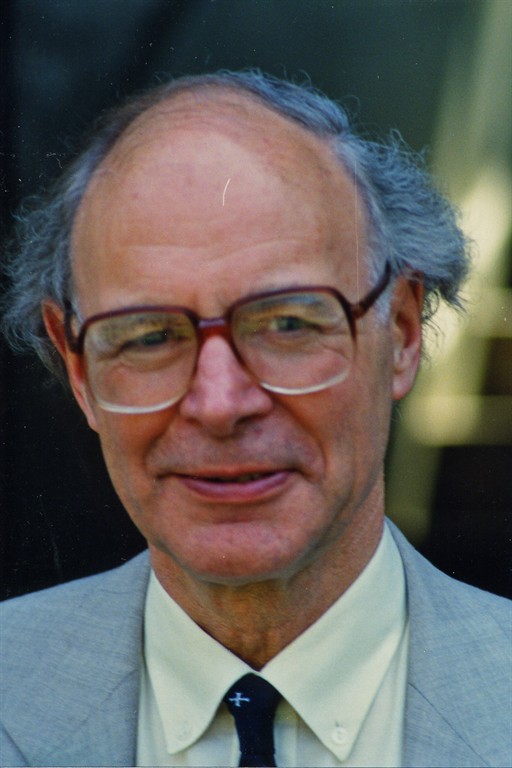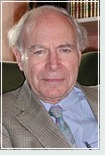Arthur Peacocke
Arthur Robert Peacocke MBE ( born November 29, 1924 in Watford, England; † 21 October 2006) was an English biochemist and theologian.
Life
Peacocke resigned after completing his studies as a Lecturer in Chemistry at the University of Birmingham, where he worked until 1959 and Senior Lecturer of Biochemistry. During this time he performed with his colleagues in Birmingham, based on the discoveries of James Watson and Francis Crick, significant contributions to the study of the molecular structure of DNA. In 1959 he moved to Oxford.
Peacocke, who had been an agnostic in his youth, now began to be interested in Christian theology. He was influenced therein by the liberal theologian Geoffrey lamp and by a scientific controversy with the biologist Jacques Monod about the laws of evolution. Peacocke graduated now parallel to his work as a scientist, a study of Anglican theology and was ordained in 1971. In the following years he devoted himself to his new main concern, the agreement of Christian doctrine with the natural sciences. Much like John Polkinghorne, he led sophisticated scientific arguments for the view that ( in the spirit of Darwin understood) Biological evolution is part of a divine plan of creation, in which Peacocke, however, categorically excludes direct control of evolution by God. Instead, put an omnipotent and omniscient God only by means of the laws of nature the framework of the evolutionary process, the results of which he could foresee. Here Peacocke has developed a panentheistisches worldview that he has been careful not demarcated from pantheism. Although he after his ordination, starting with a job as dean of Clare College, Cambridge, a teaching position recorded as a theologian, he followed closely the latest developments in biochemistry and reviews published in their journals.
With its efforts to promote dialogue between theology and the natural sciences, Peacocke earned wide acclaim and won several awards. 1993 Queen Elizabeth II awarded him the Order of the British Empire in the rank MBE. In 2001 he was awarded with prize money of £ 700,000 Templeton Prize. Occasionally criticism of his theories came mainly from representatives of the extreme positions in the polarized debate. Creationists like Phillip Johnson as opposed Peacockes Theses on the compatibility of religion and evolutionary theory outright. The critics of religion Richard Dawkins, who has led " amiable conversations " with Peacocke claims to many, he was " stunned " about its willingness to Christian doctrine with all its details, recognize; however, confessed to himself Dawkins Peacocke, he belonged to the "real examples of good scientists who are honest believer in the full, traditional sense."
Peacocke, who wrote solely on theological and philosophical themes 63 articles and nine books, died in October 2006. His son is the well-known philosophy professor Christopher Peacocke.
Works (selection)
- Persons and personality. A contemporary inquiry. Oxford et al In 1987.
- God's work in the world. Theology in the age of science. Mainz 1998.
- Creation and the world of science. The re - shaping of belief. Oxford et al, 2004.
- In Whom We Live and Move and Have Our Being: Reflections on God's Presence panentheistic in a Scientific World, 2004
- Evolution: The Disguised Friend of Faith, 2004?










